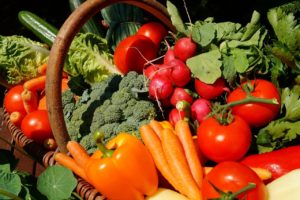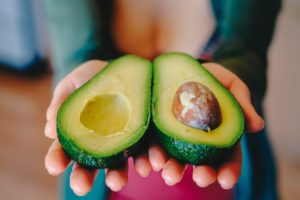Mistakes to avoid in your vegan experience
No meat, no dairy, no eggs, no animal-based products of any kind?! No worries! It’s still absolutely possible to eat a completely healthy vegan meal. But skipping the major food groups means you’re missing out on vital nutrients and, alas, flavour. But there is a way, and we provide you with it.
Everything you are currently eating, you can consume in an even better way. To make sure that there are no mistakes, no misconceptions and no believing in baseless assumptions, here are some of the most common mistakes on the vegan experience and how to avoid them.
-
Assuming it’s healthy
Just because a product has been labelled as ‘vegan’ or ‘vegetarian’, it doesn’t necessarily mean that it’s 100% healthier than the regular meals. Yes, according to studies, eating less meat is surely better for the environment, which in the long-run has a positive effect on the Earth. But that doesn’t mean it’s automatically healthier.
Most store-bought products like vegan cakes and cookies are often heavily processed in the industries. The common go-to frozen products such as veggie burgers, nuggets and meat alternatives are much more artificially processed than the regular ones. This makes them less healthy than non-vegetarian processed foods.
Don’t be fooled by the claims of package marketing. Such attractive designs are just made to attract and fool you. The products may or may not be low in fibre, protein and nutrients.
To make sure you are getting all the vitamins and minerals necessary for a balanced meal, take a good look at the ingredients. Not having enough knowledge to analyse the ingredients list is one of the most common mistakes in the vegan experience.
-
Forgetting that you can and should DIY
Surprisingly many of the best vegan foods you’ll find in the world are homemade! A common assumption is that most people end up eating lesser calories as they switch to a vegan diet. But some people actually end up eating more as they replace it with higher quality food products.
Instead of devouring vegan frozen foods that are nutritionally declining in value, take a walk down the fresh produce section. This is an excuse to stock up on all kinds of vegetables that you have never tried before. Make sure that your pantry is always loaded with beans, grains, and green leafy vegetables so that you have a fun experience cooking.
If you are planning on DIY-ing, give yourself extra time to cook. Avoid the mistake of being unprepared in the kitchen. Meal planning can help ease your transition and produce a balanced diet. If you succeed, you will learn how to listen to your own self rather than others. Trying again and again will teach you how to acknowledge yourself and your achievements.

-
Overlooking important micronutrients
When transitioning from an animal product-free diet, the most crucial part is to keep in check your micronutrient consumption. Iron, omega-3 fatty acids, vitamin D and B12, calcium, zinc, phosphorus are crucial specifically for vegans, so your body can adjust to the lack of animal diet.
Sources and intake of many of the indispensable micronutrients are reduced in the vegan experience. However, there are a variety of plant-based foods to choose from. Soy products, cereals, lentils, peas, fruits and nuts are some many choices out there.
Make sure that you know the basic sciences of how and where to get a certain micronutrient from. Turning a blind eye to such significant details is a dumb thing to do. There are certain foods that increase the absorption of one nutrient while decreasing it for the other. So keep an eye on how it works, notice and observe. Before you know it, you will avoid mistakes and as a result, they will start to get better.
-
Carbohydrate crazy
Once again, we’re back to the same point that vegan doesn’t necessarily mean it’s good for you. But this point of view is just from one perspective. The reason besides this is that when people try to replace meat and dairy-based products, they shift to carbohydrates.
Meat and dairy products tend to be rich in protein and thus are filling. While living a vegan experience, it is necessary to efficiently replace such foods with an adequate amount of protein. Refined carbs are stripped of their beneficial fibres during processing. Carbs in such an excessive amount can only lead to hunger, fatigue and low-energy levels throughout the day.
Whether it’s vegetables, tofu, chickpeas, lentils, nuts or any other plant-based protein —- start eating it. Switch the refined grains to rich grains for better nutrition. It is essential to keep a balance between nutrients, proteins, carbohydrates and minerals – because too much of a good thing is always a bad thing!
-
Inability to find a community
When you make a shift in your diet plans that is completely different from other people’s, you might feel quite lonely. At first, there can be the issue of a sense of belonging. You might question yourself now and then. Whether you even belong here or not? Are you doing the right thing?
When your close ones, your family and friends are on a different side of the food cycle, everything feels too far away. Connecting and interacting with a community that shares similar views on food choices can be a lot of support. Talking about the same thing, eating the same food, and having a broader perspective of things can be an experience to learn from. Sharing your views with a community can also be a way to practice mindfulness and embrace others.

Create an environment around you for this new life. One of the best things you can do is try to influence your family and friends in order to avoid mistakes. Educate them of the benefits of this lifestyle and be the change you want to see in the world.
